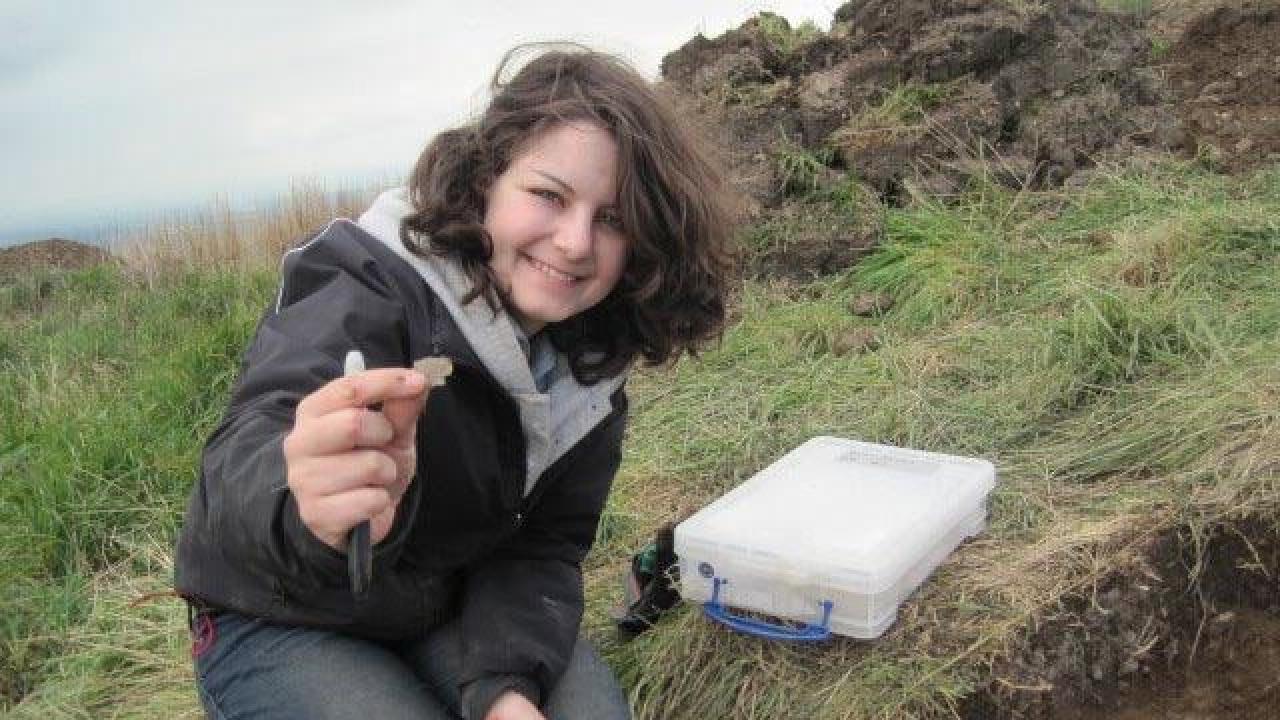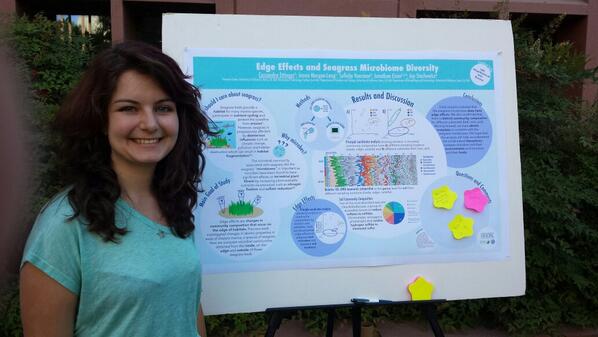
Spotlight On: Cassie Ettinger
In April, Cassie Ettinger, a Ph.D. student at UC Davis in the Eisen lab, published the first of a multi-component study on marine plant-microbiome interactions. In it she proposes the seagrass, Z. Marina, as a model system. She now plans to collaborate with the Stachowicz lab to advance hazier topics like microbiome inheritance and probiotics for plants. CMSI got a chance to hear from Ettinger about her journey to UC Davis and ask her for advice to those who might want to follow her footsteps.
 “As a kid, I was always really interested in science, I even had my own microscope! My mom played a big role in making sure I got a diverse education and was really supportive of my love of science - so I got to attend zoo camp and museum camp, after-school science classes, etc. However - it was actually my dad who got me interested in genetics. My dad was a commercial fisherman and was gone quite a lot, but when he came back we would watch Jurassic Park, which is perhaps my favorite movie (also book) of all time. There is this scene in the movie where they go “behind the scenes” per se and see how the dinosaurs are made and Mr. DNA comes out and tells them about the magic of genetics and it’s all very grand. As a kid it made an impression, I wasn’t interested in bringing back dinosaurs, well maybe a little, but I couldn’t stop thinking about DNA and how it codes for everything. Flash forward and I am studying Molecular and Cell Biology - with a Genetics, Genomics and Development emphasis at UC Berkeley.
“As a kid, I was always really interested in science, I even had my own microscope! My mom played a big role in making sure I got a diverse education and was really supportive of my love of science - so I got to attend zoo camp and museum camp, after-school science classes, etc. However - it was actually my dad who got me interested in genetics. My dad was a commercial fisherman and was gone quite a lot, but when he came back we would watch Jurassic Park, which is perhaps my favorite movie (also book) of all time. There is this scene in the movie where they go “behind the scenes” per se and see how the dinosaurs are made and Mr. DNA comes out and tells them about the magic of genetics and it’s all very grand. As a kid it made an impression, I wasn’t interested in bringing back dinosaurs, well maybe a little, but I couldn’t stop thinking about DNA and how it codes for everything. Flash forward and I am studying Molecular and Cell Biology - with a Genetics, Genomics and Development emphasis at UC Berkeley.
As an adult, I started to see genetics/genomics as tools that I could use to study evolution. Through my undergraduate research experiences and classes, I got really interested in organism-organism interactions and the co-evolution of species. My first research experience was on legume-rhizobia symbiosis at UC Berkeley in Dr. Ellen Simms’ lab. Here I fell in love with plant-microbe interactions specifically nitrogen fixation. Now, my interests now have broadened such that I am interested more generally in host-microbe interactions.
Microbes have important roles in host health and have been overlooked for too long. I am hoping to at least start a dialogue in some of these fields and expand on what's known about microbes - my dissertation is specifically on the fungi associated with seagrasses. I am particularly interested in the important roles microbes may have played for seagrasses during their return to the sea (ancestor is terrestrial/freshwater) as any microbes important during this transition are likely also important for seagrasses restoration efforts which are negatively affected by climate change.
If you want to get involved: Be persistent. Be driven. Get on twitter and start asking questions. Don’t be afraid to email your dream PI. There are plenty of undergraduate classes now focused on microbiomes, microbial ecology and metagenomics - take them. Some are even online e.g. Coursera. Additionally, computer science classes will continue to be more and more useful for you now and in the future.”
